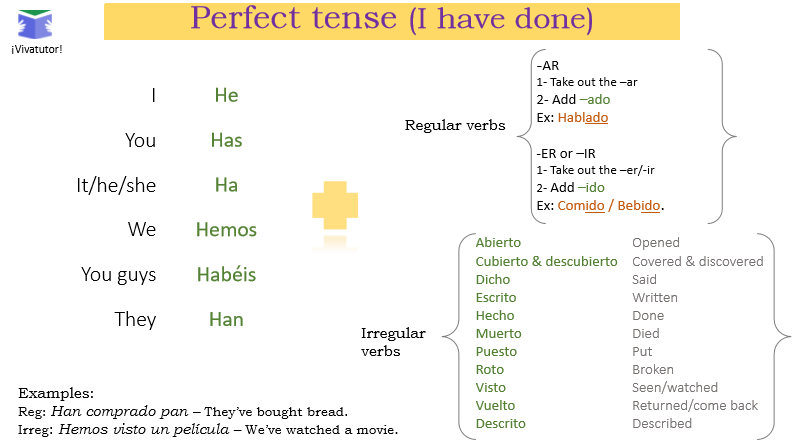Haber or tener? That's the question!
This is a frequent question, specially for beginners. Why do both mean "to have" but are used so differently?
Well, in this video I explain the similarities and differences between these two.
If you're up to the challenge, do the translations at the end of the video and I'll be happy to correct them for you! :)
And this is the perfect tense grid, that you can use to get the participle right when using a composed tense (including the irregular ones!):
Remember, no question is silly!
¡Hasta luego! :)
